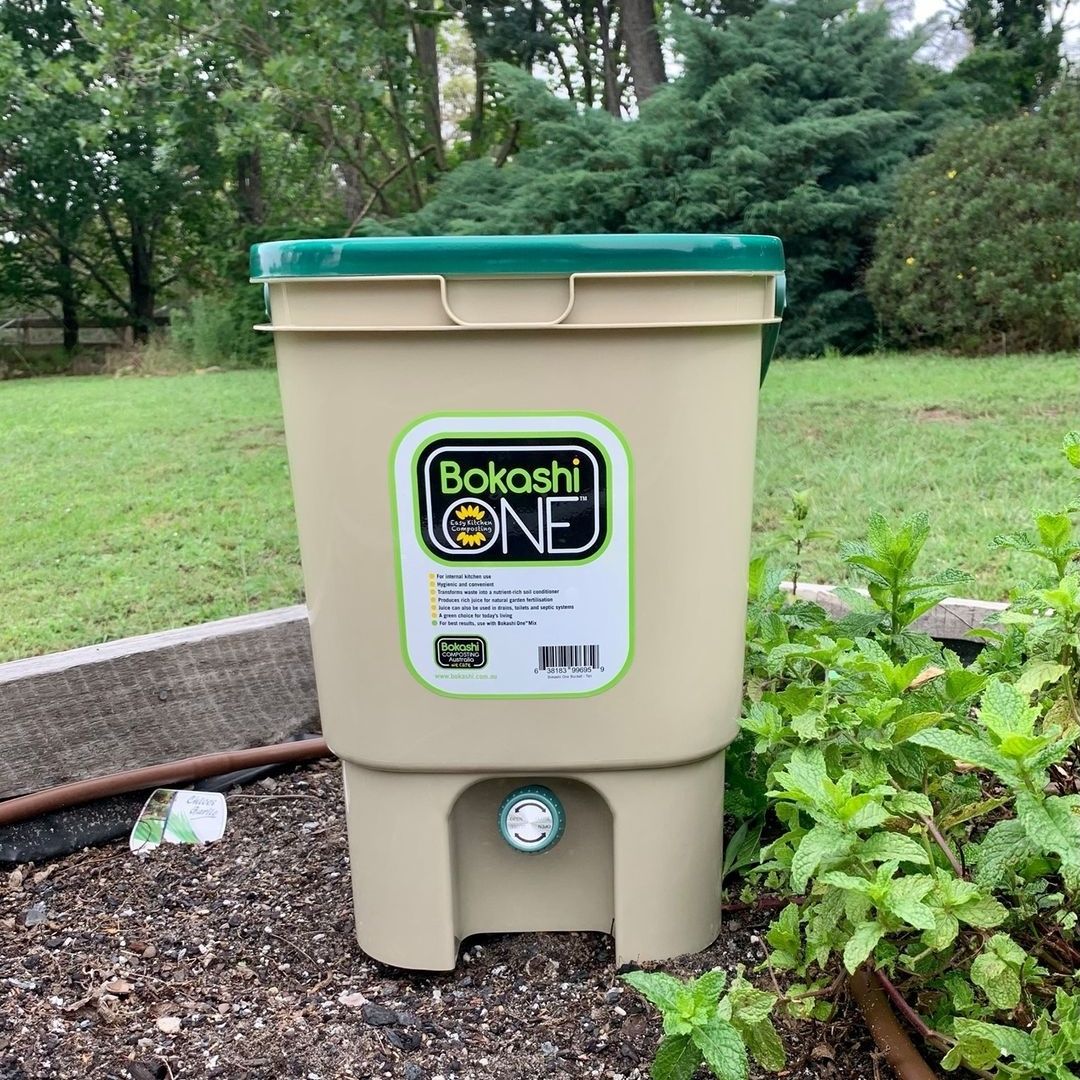Composting your food scraps at home is one of the easiest things you can do to nourish your garden and help the environment. If you've never composted before, you're likely to be curious about why and how you should start composting.
As a beginner, you probably have a list of questions about composting, all of which we will try to address in this post.
Firstly what is composting?
Quite simply, composting:
- Turns your leftover food into a valuable resource for your garden and house plants
- Keeps your food scraps out of landfill
- Can save you money on fertilisers and manures
- Reduces methane production


Why Should I Start Composting?
For your garden - Adding compost to your garden or house plants improves its soil structure, aeration and water retention. It also adds important micronutrients and increases bacterial activity in the soil. It’s nicknamed ‘Black Gold’ by gardeners because it’s so beneficial for soil! For the plants that feed off the soil, it can improve their flavour, nutrition and resistance to common diseases. It’s basically plants superfood.
For the environment - Composting food scraps, reduces the amount of waste sent to landfill. Organics in landfill break down anaerobically (without oxygen) to produce methane gas, a greenhouse gas 21 times more harmful than CO2. In Australia, over 7.6 million tonnes of food ends up as landfill (enough to fill 9,000 Olympic sized swimming pools!) If global food waste was a country, it would be the third biggest emitter of greenhouse gases, after the USA and China. Composting food scraps is a great way to extend the life of the food we use, productively.
How Can I Start?
Here at Flora & Fauna, we highly recommend using the Urban Composter System. It works through an easy four-step system:
- THROW any food scraps (vegetables, fruits, meat, fish, wilted flowers, tea bags, dairy, coffee) into the composter bucket, ensuring they have been cut into small pieces. You can use the Compost Masher to help with this!
- SPRAY with the Compost Accelerator spray. The citrus-based spray is filled with micro-organisms that will ferment and break down the left-over food.
- DRAIN the juice from the bucket every few days. The juice, or ‘compost tea’, is filled with good bacteria and nutrients. It can be diluted and added to your garden, flower beds and indoor plants.
- MIX the scraps into outdoor soil, an outdoor composter, a pot or a worm farm; the scraps will break down in about 6 weeks. Use on your garden/plants when it’s dark, crumbly and mostly broken down with an earthy, soil-like smell to it.
What is compost tea?
Compost tea is simply the juice from your Urban Composter mixed with water at about a one to ten ratio. It’s nutritionally rich, well-balanced and incredible to feed your plants. It can also help ward off diseases and aid in the growth of your plants.
Can I still compost if I live in an apartment?
Yes! The Urban Composter City was designed especially for city-dwellers, couples, small families and apartment living. Standing at just 27cm high with an 8L capacity, it’s the perfect size for your countertop or balcony.
Even if you don’t have access to a garden (or you’re not particularly fond of gardening) you can simply mix the contents from your Urban Composter into a large tub of soil to use for your indoor pot-plants. Then brag to your friends about how great your plants are looking! If you have too much you could also give some compost to your friends and family to use.
Can I keep my compost bucket inside?
The best part about the Urban Composter and the Bokashi ONE is that it can sit right on your kitchen bench. No nasty odours, flies, or unfortunate leaks. When food scraps are sprayed with the Compost Accelerator spray, it starts a complex process of fermentation in the highly acidic conditions - which means no smell, no pests and no methane. The lid also has a tight seal so there’s no need to worry about bugs or nasty smells in your kitchen.
It’s important to drain the juice from the composter every few days to prevent terrible smells. If at any point you’d like to clean your Urban Composter bucket, simply use an organic cleaner or water mixed with vinegar or lemon juice.


I have nowhere to use my compost. What can I do with it?
Your local council may do organic waste pick-ups, or you can use online resources like ShareWaste – an Aussie founded website connecting you with nearby neighbours who are in need of your compost. Another great idea is to find out whether your neighbourhood has a community garden; you can get rid of your extra compost and do something good for the community!
If none of these options are available, your fermented food scraps (not compost) can simply be put in the bin as you’ve reduced the volume of your food waste by around 300%. This means a significant reduction in the negative impact the harmful gases have on our atmosphere. And we think that's a pretty awesome thing to do for our planet!
At Flora & Fauna we have a great range of composting goodies including starter kits. Why not give one a try!
If you would like to read more about composting, head to the Eco Hub for more tips.
10 Tips to Prevent Food Waste






